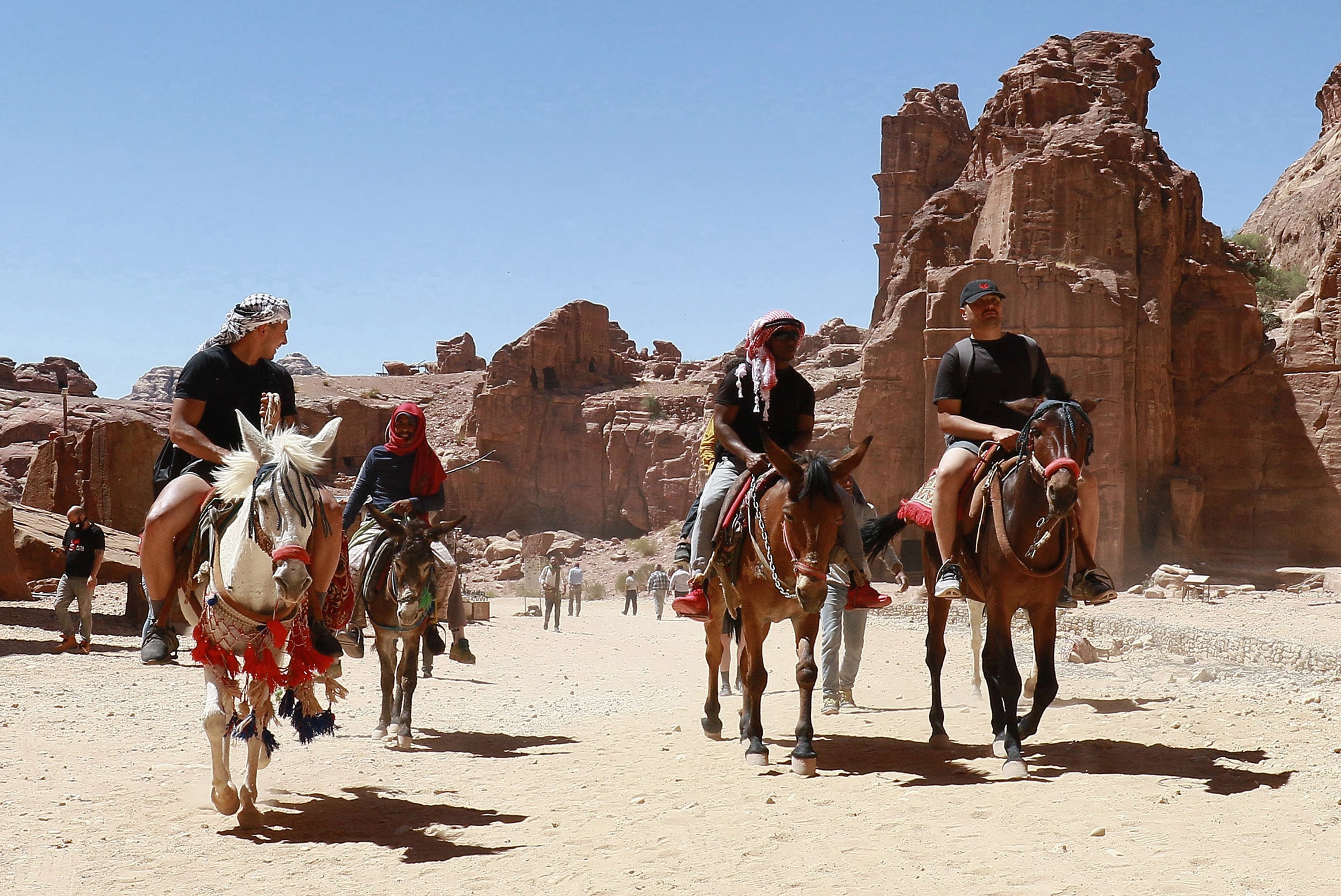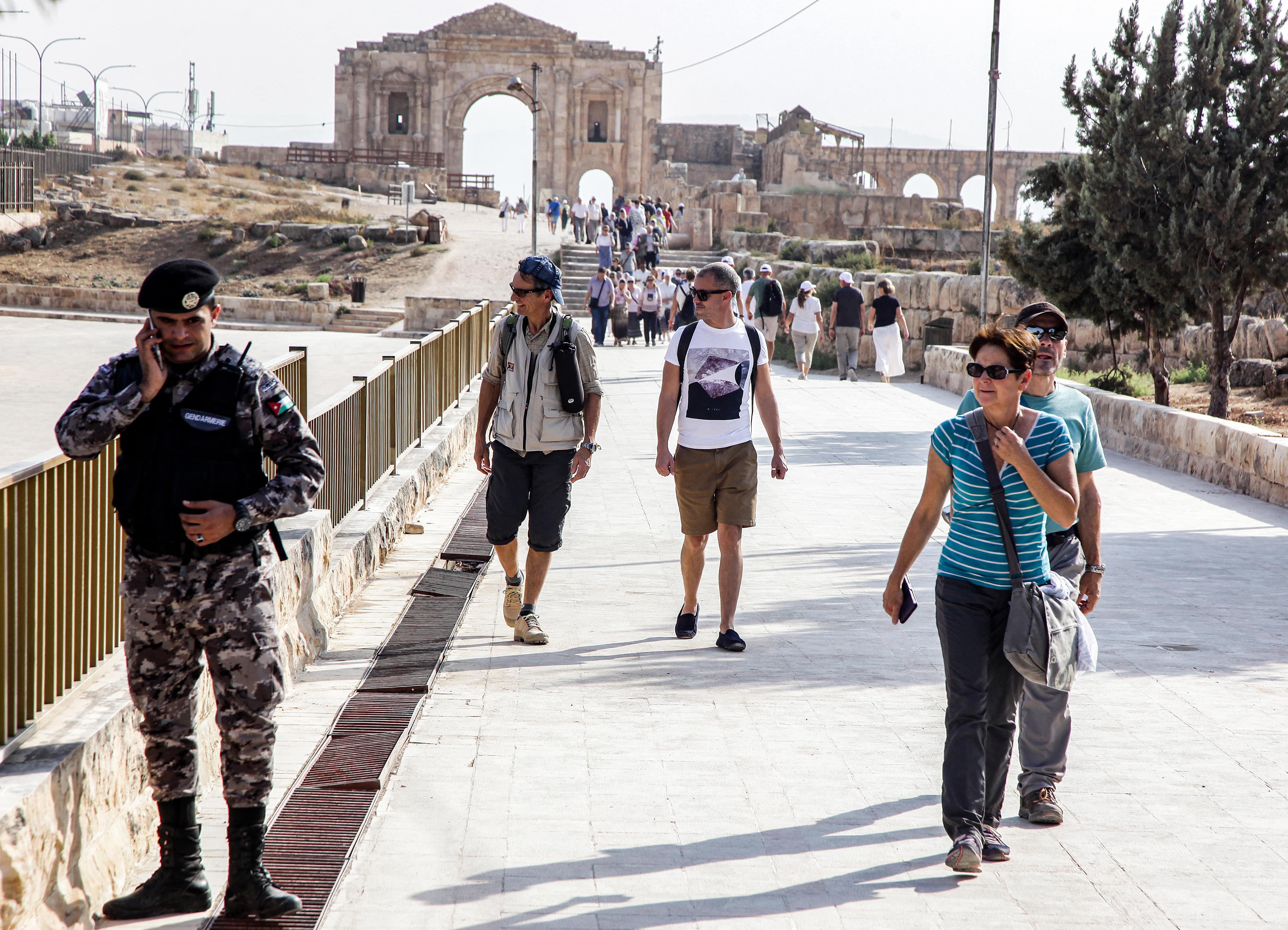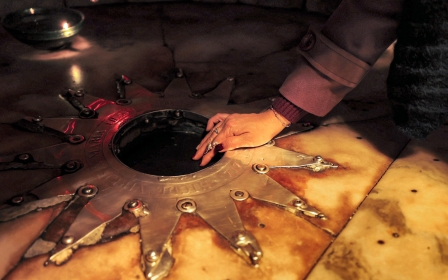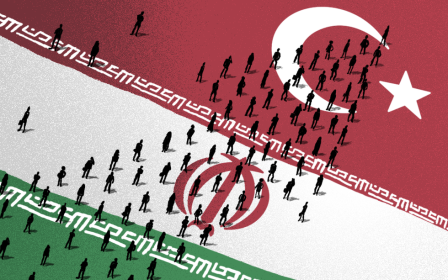Jordan's battered tourism industry sees little respite two years after pandemic began
Yasser's shop in downtown Amman has all the trappings of a Middle Eastern emporium. Ornate lights hang from the ceiling and colourfully embroidered dresses are stacked against the wall.
Before the coronavirus pandemic, business was "very good", he told Middle East Eye, explaining that he made around 10 sales a day. His shop is a short walk from Grand Husseini Mosque, the city's bustling souks, and traditional falafal resturants - all big draws for tourists.
Now, he can work 12 to 15 hour shifts for two or three days without a single customer: "Work has become very hard, there is no tourism at all."
'Every day we are complaining to the Ministry of Tourism, pleading with them. But no-one hears our cries'
- Salameh Katar, Jordanian Society of Tourism and Travel agents
Yasser's dependence on tourism is commonplace in Jordan, a resource-poor country where one in four adults are unemployed and aid from the West - mainly the US - bolsters the state's coffers.
The industry had been a bright spot for Jordan's otherwise beleaguered economy and comprised roughly 20 percent of GDP before the pandemic. In 2019, income from tourism grew at a rate of 10 percent, far outstripping Jordan's two percent overall growth rate.
In a country with a 10 million-strong population, where private investment is scarce and public payrolls account for more than half the government's budget, tourism was one of the main drivers of private sector job creation.
The government recognised this and over the years sought to capitalise on Jordan's relative stability and history of tolerance to promote the country as an international destination.
And it worked. Jordan welcomed a record 5.4 million visitors in 2019. The same year, the ancient city of Petra celebrated receiving one million visitors within 12 months.
'Practically zero'
Now sites such as Petra are eerily quiet, and one of Jordan's most vital industries finds itself in a precarious state roughly two years after the onset of coronavirus.
Mohammed al-Masadeh, the manager of Petra Night Tours and owner of Petra Sella Hotel, said he used to have more than 1,000 customers a month for his guided tours. Today, he gets about 10.
The situation is getting "worse and worse", Masadeh told MEE. "We have never seen this situation in all of our life."
He has already shut down two of his restaurants, one in Petra and the other in Amman. He says if things don't improve by June or July he will close his other businesses for good as well.
Ahmad Saeedeen, who runs a campsite in Jordan's Wadi Rum desert, said the few visitors he deals with offer few financial benefits. "When you need to pay for yourself, and for the people that work for you, we count the one visitor we get a week as nothing."
The Jordanian government had hoped to burnish its credentials following the pandemic. It was one of the first countries to shut down when the virus struck, and won praise for enacting one of the world's "strictest lockdowns".
But many in the tourism industry say the onerous restrictions and starts and stops in opening up have discouraged visitors from returning. They believe the government has been behind the curve adapting to the pandemic and has struggled with easing measures.
Nabih Riyal is owner of Plaza Tours, one of Jordan's largest inbound tour operators. Although Jordan reopened for international travel in the summer of 2021, he brought just 6,000 visitors to the country that year. In 2019, numbers were around 60,000.
Riyal said he had just three months of business last year. The Delta and Omicron variants didn't help, but he also blamed the country's rigid entry requirements, which mandated visitors have two PCR tests, one conducted before departure and one on arrival.
He also lamented the 75 percent capacity rule for venues such as restaurants, which other countries in the region have done away with.
But he claimed one of the biggest challanges was the government's daily broadcasting of cases in the country.
"It was incessant, and they promoted it every night. It scared tourists away and really hurt us with the travel restrictions," he said. "Italy placed us on their red list. That was 20 percent of our market, gone."
On Thursday, the government announced that, starting 1 March, it would tone down the reporting of cases, and switch to weekly updates. PCR requirements to enter the country have also been done away with.
"These measures were desperately needed," Mohammad Momani, manager of the Conroy boutique hotel in Amman, told MEE. "With all the tests, it cost people $100 just to arrive in Jordan."
Momani said the hotel, where rooms cost about $50 per night, is operating at 30 percent capacity as compared with the average 70 percent when it normally prepares for the busy springtime season. Still, he says they are lucky. Recent numbers put hotel occupancy in Jordan at just seven percent.
Post-Covid competition
Riyal, who serves as the spokesman for the Jordanian Inbound Tour Operators Association, said the country was also facing heated regional competition going into the 2022 season.
Egypt is working hard to bring tourists back and is opening the Grand Egyptian Museum later this year. Visitors have swarmed to the UAE due to its handling of the virus and eased restrictions. Even Turkey, where a plummeting currency may have hurt locals, is now a much cheaper destination for foreigners.
Jordan's trademark image, offering tourists an experience in traditional Bedouin culture and access to historic sites such as Petra, also faces rising competition from its southern neighbour.
Saudi Arabia's Crown Prince Mohammad Bin Salman has put tourism at the centre of his efforts to diversify the oil-rich country's economy. And the traditional kingdom has its own desert backdrop along with ancient ruins such as Al 'Ula.
"The Saudis are open to everyone now, and they have an unlimited amount to spend promoting their own industry," Riyal said.
Ashraf Zagha, owner of the Conroy Hotel, is confident the numbers will bounce back with the government's decision to roll back restrictions. He also says that Jordan's blend of traditional, yet open culture will continue to draw visitors.
"My hotel caters to Westerners and people who are comfortable with a bar scene. They want to visit all of Jordan's sights, but also have a good time. We have a very popular beer garden," he said proudly.
Zagha said that his bars and restaurants were proving a bright spot for the hotel right now, operating at about 70 percent capacity with mostly local Jordanians as customers.
Still, he had to take out a loan to keep the business going: "There is a lot of debt right now within the tourism industry."
Jordan's cash-strapped government has tried to cushion the blow of lockdowns. It provided loans to tour operators to cover 50 percent of their employees' salaries. But that money has to be paid back and the programme is set to expire in June.
Many who spoke with MEE said the measures may have offered a reprieve, but have done little to address the perilous state of the industry.
"All of our business has been cancelled. Every day we are complaining to the Ministry of Tourism, pleading with them. But no one hears our cries," said Salameh Katar, a board member for the Jordanian Society of Tourism and Travel Agents.
Many also say the initiative also hasn't filtered down to shopkeepers such as Yasser.
"The money from tourism affects a lot. It does not just go to the tourism offices, but cab drivers, restaurant workers, a lot more people than you'd expect," Said Saudi, a manager at Jordan Select Tours, told MEE.
Others are concerned that if support from the government is not extended there could be a wave of closures in the industry, before it even had a chance to pick up.
"We will recover, but it's going to take time," Riyal said. "You can't flip a switch and bring the tourists back."
Middle East Eye propose une couverture et une analyse indépendantes et incomparables du Moyen-Orient, de l’Afrique du Nord et d’autres régions du monde. Pour en savoir plus sur la reprise de ce contenu et les frais qui s’appliquent, veuillez remplir ce formulaire [en anglais]. Pour en savoir plus sur MEE, cliquez ici [en anglais].






